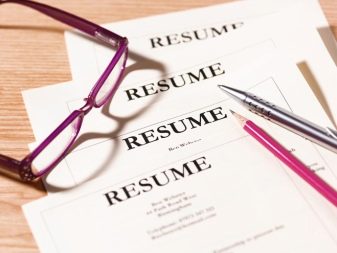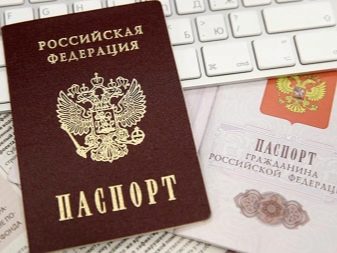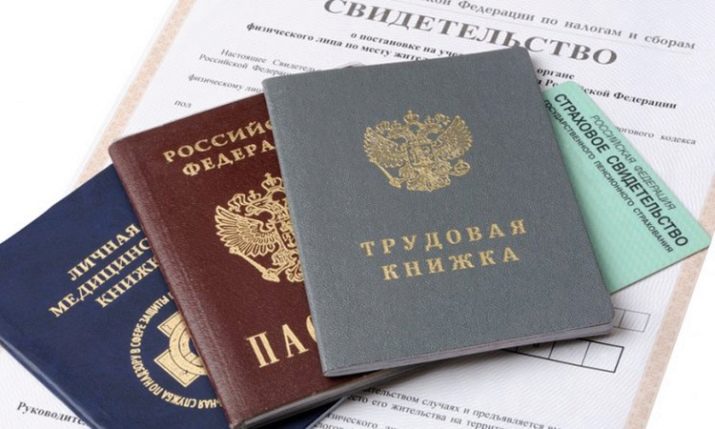How do I prepare for an interview?

To take this or that position in any organization, it is not enough to have knowledge, skills, even very solid experience. Only a few (this is not an exaggeration) in certain professions can establish themselves with one proper name. It is extremely important for everyone else to know how to prepare for the interview correctly.

Preparation stages
Preparation includes several important points.
Wording questions and answers
Any organization is interested in professionals and just adequate people working in it. But the time of conversation with each candidate is limited simply because there are many other urgent matters. Exactly because of this reason preparing for an interview with an employer is very important, and only well-prepared ones will show their best side... With all the specifics of individual areas of activity, there are universal questions that will be asked when applying for a job both in a circus and in an instrument-making design bureau, both in a flower stall, and in an international insurance company or an oil production platform. First, recruiters will ask about training for the profession and previous experience.
They need to show in their answers:
- what skills and abilities were acquired during training;
- in what practically oriented projects the person participated during the training;
- in what area his previous organization specialized (most often the first one is of interest and the one after leaving which they come for an interview);
- what was the structure of these organizations, and how many more people were in the structural unit;
- how the candidate got there;
- what responsibilities were at the previous job;
- what experience was gained, what new knowledge was acquired;
- what projects the candidate was involved in;
- for what reason left the previous position.

A clause about the structure of the organization (the total number of employees in it and in the department, the role of the department in the organization) is added to understand how well the candidate learns the place where he works. This is a kind of test for good faith. You will have to strain your memory and restore such details in advance. As for the point about employment in the same place, you should avoid replies about "luck in the form of practice from the organization" or "accidentally learned from other students that firm X is cooperating with our university."
Such answers immediately betray a frivolous character, and also show that it will be impossible to rely on the employee's conscientiousness.
The correct wording might look something like this:
- actively participated during training in conferences and competitions, the idea of looking for a job arose early, I liked company X, clarification of contacts, an interview;
- receiving an invitation through a teacher after the defense of the diploma (at the same time, add that the company has always liked it, and the activity in the position received also inspired);
- employment after internship (it is advisable to indicate what the job responsibilities were, and what opportunities this first job gave);
- first serious permanent job after a number of internships (It is advisable to indicate from how many candidates a person was chosen, what was interesting about a particular position, what it gave professionally, and what intentions in professional development appeared).

But when preparing for an oral interview, you need to take into account that the interest of personnel officers in the first place of work is not limited to this. Even if the candidate describes his employment not in 1-2, but at least in 6-8 phrases (which is very desirable), bYou will be asked to additionally ask about:
- expectations from the first job, whether they were justified;
- most memorable moment in work;
- the most liked moment in the previous position;
- initial impression of the company and other employees;
- expectations from the leader, whether they were justified;
- skills and abilities acquired during the work;
- undesirable job for the candidate;
- disliked moments in previous work;
- wages during the probationary period and at the end of the work.
Answering the question about the results of the internship, we can say that it became clear that the company's staff is ready to do everything possible to achieve success. When it comes to the moment they liked most during work, experienced candidates immediately indicate that they were happy to work in a friendly and close-knit team, to master new skills and abilities. Another variant - indicate that a certain position was very interesting and attracted with a range of responsibilities... When describing interaction with leaders, it is worth focusing attention for their help in mastering unfamiliar work processes and subtleties, for general support.
Talking about the skills and abilities learned, you should talk about how the tasks changed during the internship and / or permanent work. Be sure to emphasize that this change has been accompanied by an increase in skill and increased flexibility in the professional sense.

When describing the impressions of the practice, personnel officers are waiting for a story about the main responsibilities, the field of activity, the main difficulties and what the candidate has learned from the internship. It is advisable to express gratitude to former colleagues, to emphasize their attention and support.
But a typical interview technique also implies an interest in studying at a university or secondary vocational institution.
Answering this question, indicate:
- the name of the educational institution, faculty and specialty;
- the place of the educational institution in the overall ranking;
- the main achievements of the educational institution and its reputation;
- the reason for choosing an institution;
- academic performance, receiving additional scholarships;
- participation in competitions and special programs;
- internships (practices) and skills acquired during their time;
- research achievements;
- participation in social activities inside and outside the educational institution;
- additional educational courses.
But you need to understand that the interest of personnel officers is not limited to this either. They can ask about their own assessment of the quality of education and the motives that would force them to interrupt their studies, about what, in the candidate's opinion, distinguishes the educational institution from similar organizations. And they also ask about the reasons for choosing a profession: was he conscious, or is it an imitation of parents, other relatives, some idols, perhaps.
Sometimes recruiters ask something like "That there is such and such a field of activity for you." The answer to this question should be thought over in advance, and it is advisable to limit yourself to 3-4 phrases with clear wording.

The next block of questions is about employment in a particular company. Answering them, you need to show your knowledge of its specifics and nuances of activity. Speaking about why this particular company was chosen, it is worth highlighting 3 main points that attracted attention and determined this very choice. It is very useful to combine the answer to this question with considerations about career choice in general. Then it turns out, as it were, a concatenated hint that the candidate cannot imagine his participation in the profession without employment in a specific company.
Often they are interested in the career goals of those who came for an interview. It is imperative to show a desire to bond with the organization for a longer time. It is worthwhile to think over and even paint the answers to such questions in advance:
- about a dream;
- about goals for the next 3, 5, 10 years;
- about your own vision of an ideal career;
- about the ways to achieve the goals set for 3, 5, 10 years;
- about possible obstacles to their plans, ways to eliminate them;
- about his assessment of the main thing in the work in this specialty.
Sometimes recruiters directly ask why they should give preference to a particular candidate. It is necessary to focus on the strengths and the most powerful competencies.

Important: each of these benefits must be supported by concrete evidence, and not just declared. As for the weaknesses, one should not mention such stereotyped points as perfectionism, excessive attention to family or hobbies, excessive demands on people. Instead, one should talk about:
- the most difficult moments in the profession for yourself;
- excessive rationalism;
- difficulties in mastering certain new programs and technologies;
- difficulties with public speaking;
- excessive passion for work.
But it should be borne in mind that all the shortcomings should be named such that it will be possible to overcome in a short time.
You need to think about other likely questions as well. They ask about hobbies and dreams in childhood, about the literature read and the films watched. Sometimes they are interested in the skills of working in a team mode. You also need to show your ability to lead a discussion and argue your position.

Rehearsal
During the preparation process, it is worth analyzing the experience of previous interviews. If there is no such experience, you can always find stories of other people about this procedure when selecting for similar positions. The composition of the questions is unlikely to differ. When rehearsing an interview, it is helpful to first think about the sequence in which the questions will be asked, and what answers the HR officer will expect.
Important: you should prepare as many answers as possible related to real achievements and with the current level, and not with what is expected after some time.
Attention is paid when working out answers:
- clarity of speech;
- the rigor of the wording (no ambiguity);
- maximum content;
- laconic statements.
You need to prepare for the final interview in much the same way as for the preliminary interview.But it is worth analyzing your answers, the likely interests of recruiters and reveal to them what they have not yet had time to find out right away. If you are going to be tested on a "polygraph", it is advisable to rest on the eve of the test. It is undesirable to use alcohol or psychotropic substances. Questions must be answered honestly, behaving as usual.

What to take with you?
But questions are not all. It is necessary to consider what documents and other things you need to have with you at the interview.
Important: it is required to agree in advance with personnel officers in order to know what documents they want to familiarize themselves with.
It is very helpful to take with you a printed map of the area that indicates the location of the office. If you rely on a simple knowledge of the address, there is a great risk of being hopelessly late.
You should also have your resume with you. Better in 2-3 copies. It is likely that there will be two interviews on the same day. Or there will be two or three interlocutors at once. The resume is placed in front of you and additionally offered to the interviewer.
Even if the recruiter already has a copy of the resume, such an offer is a rule of good form. And a copy, placed on the table in front of you, allows you to quickly recall various formulations for answers. Unless the applicant is constantly looking at the paper, but refers to it periodically, this is completely normal. Nobody's memory can be perfect. You can make notes in a notebook, but after asking permission and recording only the most important points, and not everything in a row.
Even a diploma is not always needed, and this point should be clarified especially. But you should take your passport with you in any case. Almost all major organizations and business centers have already organized a powerful access control system.
Examples, programs, cases, original projects can be with you, but you do not need to impose them. If the interlocutors are not interested in such offers, it is better to immediately return them to the portfolio and not mention more in the conversation.


And also it should be borne in mind that for employment in accordance with applicable laws and regulations, you need:
- SNILS;
- TIN;
- work books;
- military cards;
- in some cases, medical books.
Important: all documents that confirm educational skills and training in various programs should be put in one folder and presented together. This will make a much more favorable impression than chaotic "digging in pockets".
Some creative positions, as well as photographers, are selected by portfolio. It is worth not only sending it in advance, but also having it with you in order to immediately clarify and discuss the necessary points.

What to wear?
But even if the job seeker is well prepared for the questions and stocks up on the necessary documents, sometimes a refusal is likely. For the simple reason that a person does not know how to dress properly. And this implies not only some specific rules, but also the choice among all the appropriate clothing that is comfortable. The feeling of even the slightest inconvenience constricts and hinders, which will be immediately noticed by experienced interviewers. It is perfectly possible to use a shirt buttoned up (no matter how familiar such clothes are).
Small bags should not be taken (even by women). It is rather an accessory for fun evening entertainment. You need to have a bag or briefcase of sufficient size so that you can safely put all the necessary documents.
It is advisable to focus on the business style (its characteristic features are the dimness and severity of the design). Earrings and a watch are appropriate for a job interview, but the general rule of thumb is the fewer accessories the better.

Frequent mistakes
It is very important to take into account the tips and rules for successful employment. But it is equally important to pay attention to possible mistakes during the device. The main one is when applicants have failed to demonstrate their motivation sufficiently fully and convincingly.The next important point is when the skills stated in the resume were not disclosed or not confirmed. For example, if a candidate wrote that he speaks a foreign language, and then did not understand the simplest questions or made gross mistakes in his speech, this immediately demonstrates him from the worst side.
The psychological underpinnings of accusations of rudeness, inadequacy and other actions by former employers are quite understandable. It is also clear that all this may well exist. But expressing such moments in an interview is a sure way to refuse. All organizations value employee loyalty. And those who did not show loyalty before are unlikely to find it now - this is the typical line of thought of any personnel officer and manager.

Any delay, even for a few minutes, is gross disrespect. But when they arrive for an interview a few minutes earlier, this is extremely good.
You can not use bright makeup and catchy manicure. No less serious errors will be:
- the device of a stormy feast the day before;
- the smell of tobacco;
- curry favor with the personnel officer;
- excessive arrogance and display of superiority;
- cheeky gestures;
- obscene expressions;
- too frequent use of the word "I";
- lack of interest in the work ahead;
- interruption of the conversation due to a phone call;
- "Light unshaven" and other deviations from hygiene standards.









